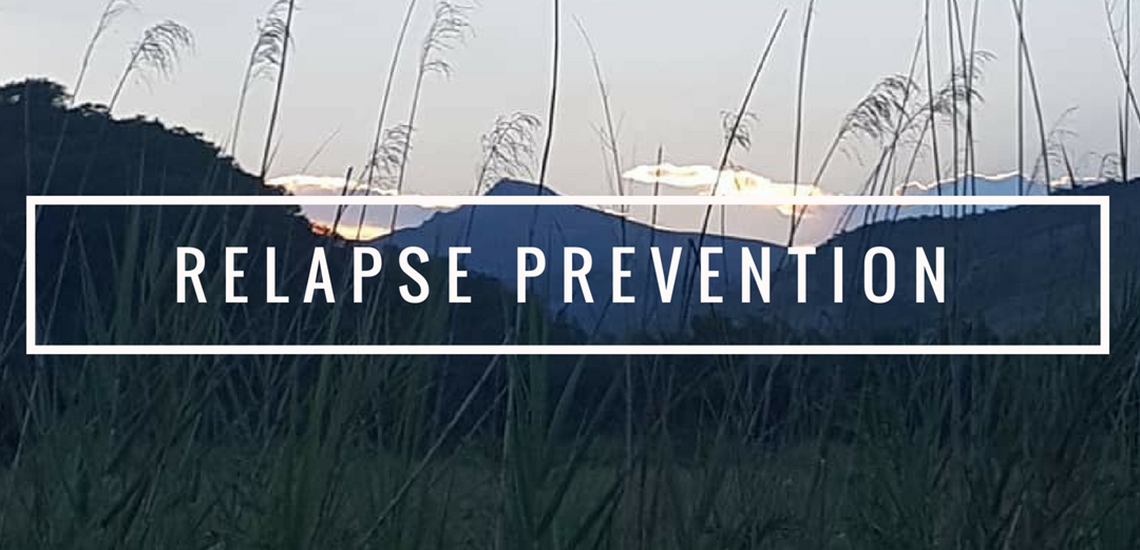If you are worried about yourself, a family member or a friend, contact us for information.
Relapse Prevention

There have been many theories attempting to explain the motivation behind addiction, namely biological and neurobiological, psychological, behavioural models, individual differences and finally sociocultural. With all these theories, beliefs and discussions, the idea that makes the most sense to me is Dr Bruce Alexander’s “Addiction isn’t you – it’s the cage you live in”. Whether you are dependent on a substance, behaviour, phone, (unhealthy) relationship or material things – dependency itself is a hurtful prison you are stuck in, always feeling that you need ‘it’ to cope. There is no freedom in an unhealthy dependency, it’s a cage.
You will need to confront your denial and address the deeper issues that underlie addiction and a possible relapse, you will need to be honest by connecting with yourself and being aware of the reality of your current circumstances. The word “addiction” is derived from a Latin term for ‘enslaved by’ or ‘bound to’ and explains why someone will be in denial about being in addiction. An addict or family/loved ones of an addict will have a bag full of explanations and will be unable to consider the reality. This is a type of defence mechanism to reject the uncomfortable truth and everything that will come with it. Sometimes things need to get so bad that addicts and their family/loved ones are unable to ignore the reality any longer.
Unfortunately, it is therefore possible for addicts to still be in denial in a treatment facility if they came in before they hit rock bottom or have not acknowledged their rock bottom or if family and loved ones protected them in any way from the consequences of their behaviour. Through connecting with themselves and being open to the reality of their lives, they need to acknowledge the destructive nature of their dependency. They need to understand that they are caged by this dependency.
Once in treatment, the program will assist you in further understanding your addiction through your step-work. You will work through your avoidance, self-reliance and self-protection and grow to become a stronger, more healthy and happier you – but this will take work. You need to commit and reflect on your step-work. Self-reflection happens when you exercise introspection and a willingness to learn more about your fundamental nature and purpose. In your step-work, insight is gained through reflection because you are guided by different perspectives and set principals. Without introspection, someone who does the step-work will do it blindly out of habit and with no true meaning. They will not be able to acknowledge maladaptive beliefs or behaviour and will eventually revert to an unhealthy pattern, hurting themselves and those around them in the process.
Addiction recovery does not take place the moment you stop using or go into treatment. It starts the moment you recognize you have a problem and you can’t control it, but you are motivated to change and willing to do whatever it takes to recover. You will accept the challenge of being honest and face the past hurts that you need to face. You will be open to evaluate all areas that contribute to your addiction (environment, culture, friends, family etc.). Relapse prevention therefore entails much more than just being able to say “no” to our old behaviour or substances. Relapse prevention begins when your recovery begins, through now building on that which you learned through your step-work. If you have done your step-work properly, you will be able to identify and be aware of key prevention areas.
Often in treatment we will see recovering addicts anxiously motivated to receive a set relapse prevention plan, that they believe will magically keep them in their recovery. They see it as a set recipe, but do not comprehend that there is one crucial ingredient: them. Without their personal contribution to their relapse prevention plan, moulded out of a committed and dedicated step-work process they will not be able to sustain their recovery.
By Larissa De Jager
Adult Centre Female Program Coordinator
258 Blyfstanboschspruit
Houtbosloop
Schagen
1206
Call or WhatsApp: +27 72 140 6081
Email: help@healingwings.co.za